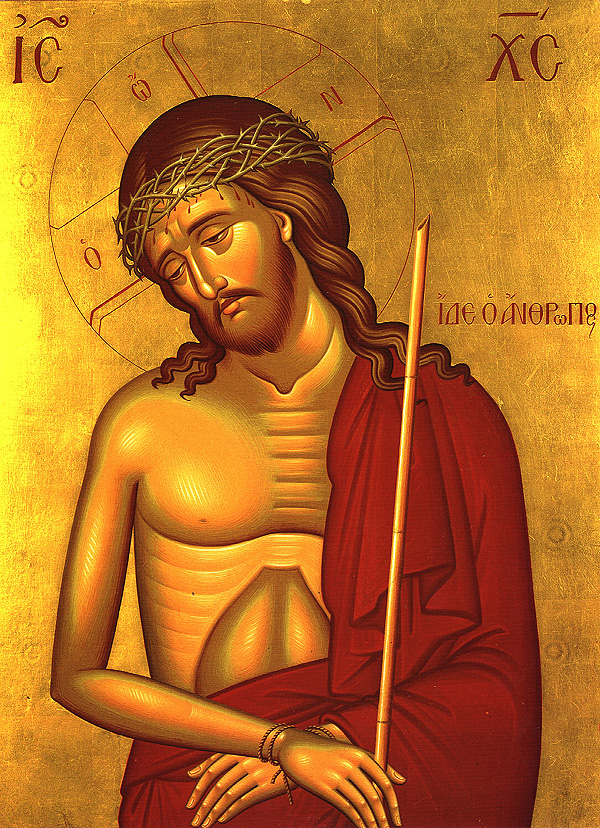
Father Hilarion the Confessor
He was born on March 21, 1903, in a village in Hunedoara county in Romania. His father was a priest. In 1926 he graduated from the Faculty of Theology of Sibiu. On July 29, 1927 he was ordained priest. On October 30, 1939 he submitted his doctoral thesis, titled Repentance: Theological and Psychological Approach. He had also written the book Towards Tabor, which is, according to Elder Justin Pirvou the best work to date about Romanian Orthodoxy and a perfect interpretation of the Philokalia. Speaking about the exalted spirituality of Father Hilarion, the greatest Romanian Orthodox theologian of the twentieth century, Father Dumitru Staniloae said: “Father Hilarion has surpassed me.” He was professor of the Theological School of Arad from 1938 until 1948. On September 25, 1958 he was imprisoned and sentenced, along with six other priests from Arad, for a 20 year sentence. He was detained in Gerla and then Aiount, where he died on September 18, 1961. He was buried without a cross, in a grave that is unknown, along with other witnesses of the Romanian nation in Aiount.
Abbot Daniel Tudor
He was born on December 22, 1896 in Bucharest. After the First World War he studied at the Academy of Fine Arts. In the year 1929 he traveled to Mount Athos, where he lived for eight months. God saved him often from a violent death. Once, flying his own plane, he was saved from death, saying the noetic prayer. While the airplane was destroyed, he did not suffer anything.
After the Second World War, returning to his house, he learned that his wife had left him. He then decided to become a monk. He sold all his belongings, renewed the Antim Monastery in Bucharest, and became a monk there. From the year 1945, the monastery gathered around it a group of scholars, which was trying to regain, based on the Bible and the Holy Fathers of Orthodox Christianity, true spirituality, having as a center of their efforts the noetic prayer. They were called The Fiery Rug. Later he went to the Sychastria Monastery where Elder Cleopas made him a hermit and later abbot of the Skete Raraou. One day in June 1958, he greeted the brothers and went to Bucharest, having been informed by God that he will re-enter prison, where he will die, confessing Christ. The principal of guilt, as confessed by a court magistrate, was that he wanted to burn Communism with The Fiery Rug.
One day in winter, they put him together with a friend in a storehouse – the White or the Refrigerator – where it was minus 30 degrees. The storehouse had no windows, but a very dirty floor. People who were put in there would die of cold after no more than three days. Father Daniel lay down immediately with his face in the dirt and with open arms, and told the friend: “Sit on me back to back with open arms and say only this, ‘Lord Jesus Christ, Son of God, have mercy on me, the sinner!'” Immediately as they started to say this, the storehouse was filled by a very brilliant light, and thereafter they did not know what happened next. After eight days (without the two prisoners receiving any water or food, sleep or clothes), the guards came to take their carcasses, but they were alive and fine. When they touched Father Daniel he was hot, and what was around him had melted.
In prison he was one of the few who wore leg chains during his time of incarceration. He died after four years of suffering in Aiount on November 17, 1962. We do not know exactly where his holy body is to be found.
Valeriu Gafencu
Valeriu was born on January 24, 1921 in Vasaravia. In the autumn of 1941 he was imprisoned and sentenced to 25 years of prison. He was then a second year student of the Law and Philosophy School of Iasi. Becoming ill with TB, he was sent in December 1949 to Tirgou-Okna. There, with no medical care, he survived another two years. With many physical wounds, they would continuously discharge pus. Valeriu awaited his death with a serenity which softened the hearts of his guards and tormentors. He was a man of noetic prayer. He was made worthy by God to know the day of his death. He asked to be buried with one cross in his mouth, and another in the right hand so as to be recognized if perchance his bodied was found. He departed to heaven, this “saint of prisons” (as other inmates have called him) on 18 February 1952 and thrown in a common, as of yet unknown, tomb. Read more about him here, here and here.
h/t Mystagogy Blog







